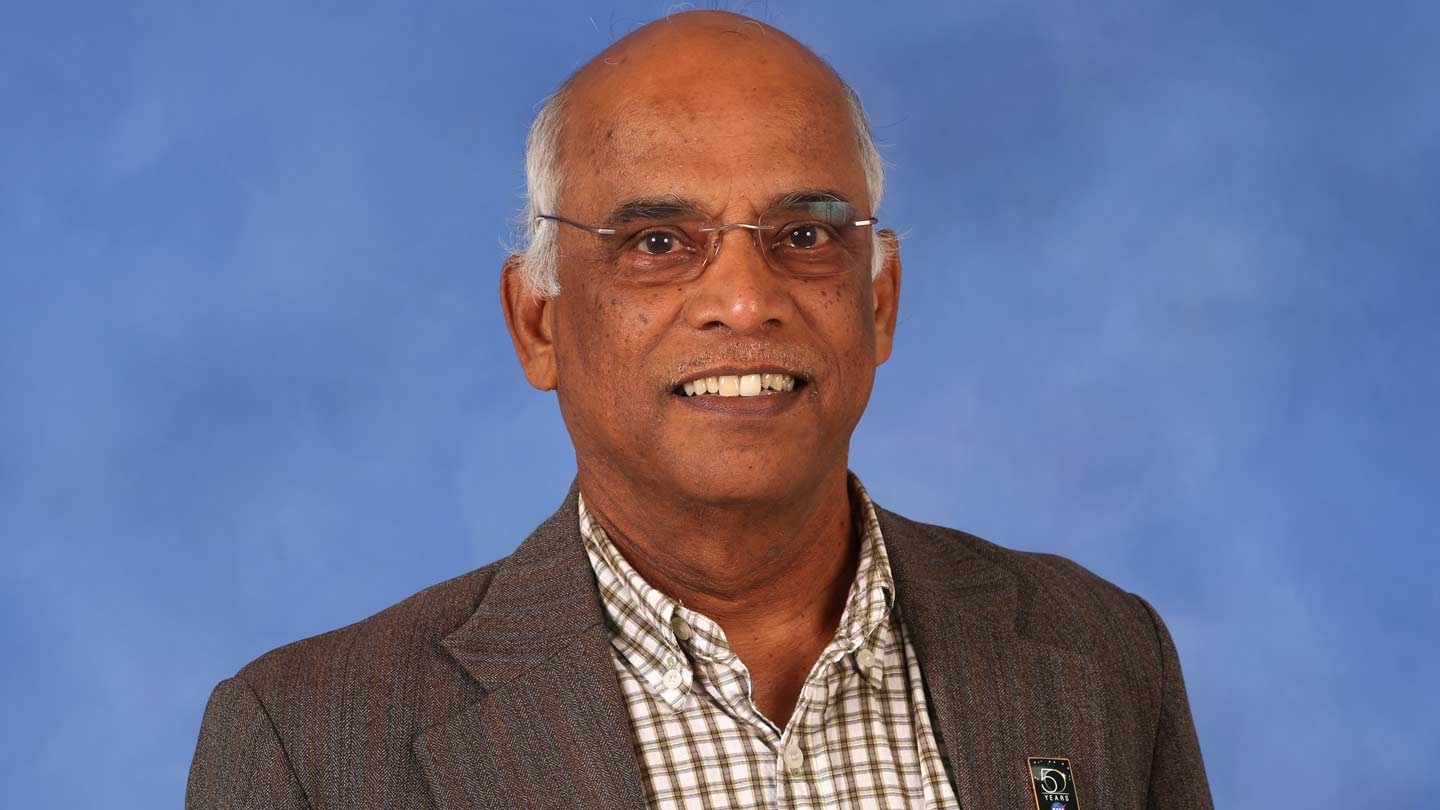
Dr. Narayana Bhat has been honored for significant contributions to gamma-ray astronomy.
Michael Mercier | UAH
The Tata Institute of Fundamental Research Alumni Association in Mumbai, India has presented Dr. Narayana Bhat, a research scientist at The University of Alabama (UAH) Center for Space Plasma and Astronomic Research (CSPAR), with its TAA Excellence Award for 2018.
A graduate of the institute who became a senior professor there, Dr. Bhat received the award for significant contributions to gamma-ray astronomy; for designing and leading the Pachmarhi Array of Cherenkov Telescopes (PACT) project; for confirming the bimodal nature of gamma ray bursts; and for his role in the revival of the Gamma-ray Burst Monitor (GBM) onboard the Fermi Space Telescope.
PACT is a ground based atmospheric telescope array designed to detect and study gamma-rays in the energy range of a few hundreds of GeV (10^9 eV) to several tens of TeV (10^12 eV).
"It consists of 25 Cherenkov telescopes spread over an area of 80 meters by 100 meters and uses the less-popular wavefront sampling technique," says Dr. Bhat. "It was able to reject the off-axis hadronic background events by precisely measuring the arrival direction of the events."
The array was located in a high altitude observatory in a place called Pachmarhi in central India.
"I was primarily responsible for the design and construction of the array, as well as the development of the computerized data acquisition system, as well as the automated telescope orientation system," he says.
Dr. Bhat says he confirmed the bimodal nature of gamma-ray bursts by using the data from gamma-ray bursts detected by GBM and then using the pulse shape parameters of the pulses to deconvolve the GRB light curves.
In quickly restoring GBM to operations after an anomaly aboard Fermi, Dr. Bhat and two others played crucial roles to revive a ground-based Spacecraft/Simulator Interface System, determining starting point settings for the GBM instrument and developing the commanding script to restore GBM to its pre-shutdown settings.
"For me, awards and recognitions are only secondary, whereas satisfaction in original research work is primary," says Dr. Bhat, adding, "Gamma-ray Astrophysics is the field I was always interested and pursued during my career."